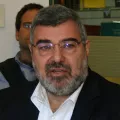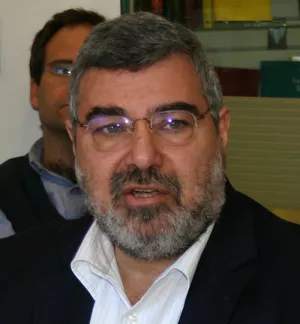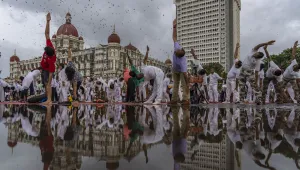The recent and ongoing spate of decisions by several Arab governments to dissolve and ban certain political groups (mostly Sunni or Shiite Islamists) is a reflection of two dynamics that need to be reviewed together: rising sectarian, political, and ideological tensions across the region, alongside continuing structural inabilities in every Arab country, except Tunisia to date, to accommodate a range of differing political views in a legitimate governance system.
Neither of these phenomena is new. The Arab world has long lacked credible political systems based on genuine free competition among political groups from different ideological, social, or national perspectives, other than brief moments in the 1930s and 1950s that disappeared with the post-1960s advent of one-party systems, presidents-for-life, or military control of the state’s governance mechanisms. Our region also has not been able to accommodate serious political competition from local groups that disagree with or politically challenge the ruling power elite. Typically the ruling powers ban leftists groups like Communists, or conservative groups that used the Islamic religious values as their core appeal, notably the Muslim Brotherhood and its many local offshoots, or ones that advocate terrorism, like Al-Qaeda, Islamic State-Daesh, and many smaller groups of the same ilk.
It is perplexing to see Arab governments today continue to use this same approach to resolving serious, homegrown political struggles. The latest examples include the banning of the Muslim Brotherhood in Egypt, the designation of Hezbollah as a banned terrorist group in Saudi Arabia and other Gulf countries, and, a few days ago, Bahrain’s dissolution of the main Shiite opposition group Al Wefaq. In these and other similar cases, governments ban such groups because they feel they are engaged in activities that are a threat to national security, cohesion, and wellbeing, or they promote terrorism and sectarian divisions, often allegedly with the assistance of third party foreign powers.
I say this is perplexing because such bans almost never achieve their aim, often backfire by generating fresh recruits to the banned groups, frequently damage the wider political fabric of the country, and usually generate negative international reactions against the governments that impose these bans. I am not writing to support these groups, but only say that government decisions to ban them is an ineffective way to deal with the genuine underlying issues in society that give rise to these groups in the first place. These groups, and others from the left of the political spectrum, came into being because local citizens felt deeply aggrieved and unjustly treated by their own societies. The issues they all raise deserve a political hearing, not a court order to ban the purveyors of the messages of reform.
The court in Bahrain that dissolved Al Wefaq this week accused it of promoting or assisting violence and "terrorism" in the country, a month after an emergency court order had shut down Al Wefaq for undermining the state, spreading sectarianism, and threatening, "respect for the rule of law and the foundations of citizenship based on coexistence, tolerance and respect for others,” while also allowing “foreign interference in national affairs."
The decision to close Al Wefaq followed the government’s announced plans to prosecute Bahrain's top Shia religious figure and the spiritual leader of Al Wefaq, 79-year-old Ayatollah Isa Qassim, who was also stripped of his citizenship. Last May, the political leader of Al Wefaq, Sheikh Ali Salman, was sentenced to nine years in prison on the basis of accusations that he incited sectarian hatred and sought to overthrow the regime.
These are very serious charges that any responsible government must investigate, without doubt, and take appropriate legal and police action if the accusations are shown to be true. But years of such moves in Bahrain and other Arab countries clearly have not slowed down or stopped the growth of homegrown opposition movements, presumably because the underlying grievances they express persist.
The trend in state-opposition relations in both Bahrain and Egypt appear to be worsening, suggesting that there must be a more effective political way to address the issues that are at play. The governments’ approaches probably will not work because the banned groups – regardless of what one thinks of them – are deeply anchored in local society and represent the views of large numbers of their own citizens. Banning them is problematic because it does not appreciably reduce the followers of the banned groups; probably only pushes the movements to work underground; generates a greater sense of despair among other political organizations in the country about working in the existing political system; hardens the use of violence by other, more militant, groups (like the Islamic State-Daesh group in northern Sinai); and, elicits public criticisms of the governments’ moves among many international parties, including friendly governments.
In the case of the Bahrain ban, the UN human rights office and UN Secretary-General Ban Ki-moon have spoken out against restrictions on opposition groups and human rights activists, including some calls for the release of “political prisoners.” The U.S. government this week also said it was “alarmed and deeply troubled” by some of the Bahraini government’s recent actions against opposition leaders.
Khouri, Rami. “Banning opposition groups is a failed Arab legacy.” Agence Global, July 21, 2016





